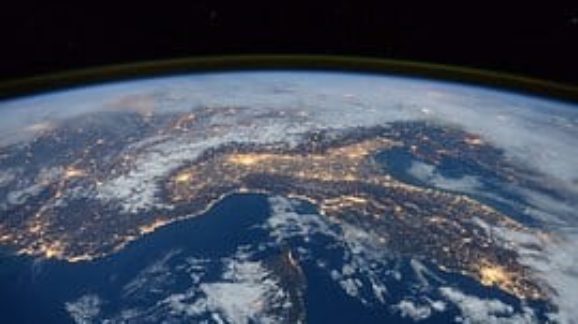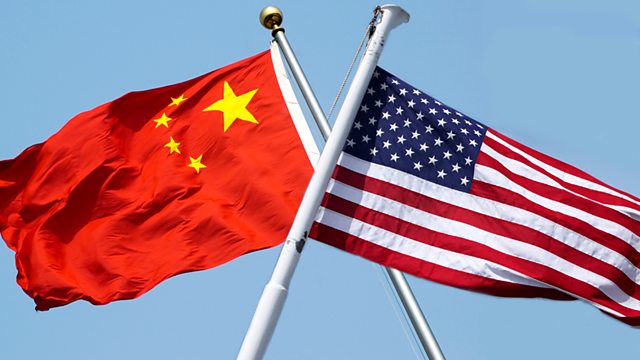Three Reasons Kigali Amendment Favors China over America

 Beginning in the 1970s, many policymakers became concerned that the refrigerants used in most air conditioners and refrigerators were leaking into the air and depleting the Earth’s ozone layer. This led to the negotiation and signing of the Montreal Protocol, a 1987 United Nations treaty phasing out the use of these chemicals. Since then, a class of ozone-safe substitutes called HFCs (hydrofluorocarbons) have been developed and are now used in most residential and commercial air conditioning and refrigeration equipment.
Beginning in the 1970s, many policymakers became concerned that the refrigerants used in most air conditioners and refrigerators were leaking into the air and depleting the Earth’s ozone layer. This led to the negotiation and signing of the Montreal Protocol, a 1987 United Nations treaty phasing out the use of these chemicals. Since then, a class of ozone-safe substitutes called HFCs (hydrofluorocarbons) have been developed and are now used in most residential and commercial air conditioning and refrigeration equipment.
However, governments and environmental advocacy groups are now targeting HFCs for phase-out because of their alleged role as contributors to global warming. In 2016 in Kigali, Rwanda, the parties to the Montreal Protocol agreed to a treaty amendment restricting production of these second-generation refrigerants. U.S. ratification of the Kigali Amendment requires it to be submitted by the president to the Senate for a vote and receive approval of a two-thirds majority, but President Trump has not yet said whether he will do so.
The Kigali Amendment would raise the cost of air conditioning and refrigeration. Some manufacturers of Kigali-compliant refrigerants and equipment stand to benefit from the amendment. They have joined forces with environmental pressure groups to lobby for the Kigali Amendment’s ratification, and in so doing have made a great many false assertions, including claims that this environmental mandate would generate American manufacturing jobs.
In an attempt to appeal to President Trump, Kigali lobbyists have also asserted that failure to ratify would give China an advantage over the U.S. In reality, nothing could be further from the truth. China wins big if America makes the mistake of ratifying Kigali, for the following reasons:
1. China gets more lenient treatment under Kigali. The United Nations classifies China as a developing nation under the Montreal Protocol, and as such it enjoys several advantages over the U.S. and other developed nations. For one thing, China is eligible for millions of dollars in aid, paid for by the U.S. and other developed nations through a UN fund, to assist it in transitioning to new refrigerants and equipment. But most significantly, China and other developing nations were granted longer deadlines under Kigali. The bottom line is that, under Kigali, China can continue with large-scale production and use of low-cost HFCs for many years after the U.S.
2. China cheats. Even after the extended deadlines are reached, China will likely cheat and manufacture whatever it wants, while the U.S. will be stuck complying with Kigali’s legal constraints regardless of the costs to consumers. The decades-long history of the Montreal Protocol shows many instances of non-compliance by China (as well as Russia and other rogue nations). Most recently, scientists have documented atmospheric increases of two chemicals banned under the Montreal Protocol, trichlorofluoromethane (CFC-11) and carbon tetrachloride, both emanating from China. Kigali would provide China with lucrative new opportunities to cheat in the future by making, illegally, the products that America can no longer make legally if it ratifies this agreement.
3. American companies lobbying for Kigali are creating jobs in China. It is far from clear that the Kigali Amendment will be a net jobs creator among American companies in the air conditioning and refrigeration sector. More likely, the jobs making the new refrigerants and equipment will just replace those making the old. But it is also far from clear how many of these jobs will actually be located in the U.S., rather than other nations, given the extent of outsourcing by this sector. In all likelihood, many more products would be manufactured in China and shipped to the U.S. than the other way around.
Honeywell and Chemours, the two makers of expensive patented substitutes for the HFCs, have forcefully lobbied for ratification based in significant part on promises of American manufacturing jobs. In reality, both have massive facilities making these new Kigali-compliant refrigerants in China, and they have produced more abroad than in the U.S. Thus, many of the jobs—and the technological expertise—are in China, thanks to these companies. These companies have every legal right to outsource as much as they want, but they don’t have a right to be less than forthright about it when trying to sell Kigali to President Trump.
Similarly, American air conditioning and refrigeration equipment makers import billions of dollars in components and finished products each year, and trade data shows that China is the second largest source after Mexico. These U.S. companies may talk a good game about creating American jobs, but they clearly enjoy the cost savings of importing from China and other nations. There is no logical reason to believe that the extent of outsourcing would decline if Kigali is ratified by the U.S., and it is very likely to actually increase.
The best way to ensure a level playing field is for the U.S. to avoid Kigali’s entanglements. Even without ratification, American manufacturers that choose to do so would be free to make and sell the new Kigali-compliant products, but the market would not be limited to this option. In other words, non-ratification gives America a degree of flexibility comparable to what China enjoys with or without ratification. The real winners from non-ratification would be American consumers, who would not face a captive market for high priced alternatives but rather a free market and greater choice.